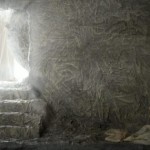Four is the number in Scripture that designates earthly completion. For all their overlap, four gospel accounts serve to emphasize the finality and fullness of their earthly witness.
When we consider the significance of Christmas in the church calendar, it is striking just how varied the gospels are in their account of Jesus’ birth. While Mark’s gospel surprisingly ignores it, and John chooses a cosmic canvas to declare how logos and light tabernacle in human flesh, only Luke and Matthew actually describe the historical event.
Both accounts emphasize the vital role of parents in God’s design.
Luke does it particularly intimately, conveying immediacy through direct speech, and lauding the exemplary piety of the virgin Mary, and the only comparatively less devout parents of the one whom Jesus will call the ‘greatest of the prophets’, John the Baptist. Evangelicals might question Mary’s immaculate conception; there can be no dispute that Luke portrays Mary as a woman of uniquely unblemished piety.
The beginning of Matthew’s account is like unto John’s in its expansive scope; it differs in his emphasis on history and humanity. Modern feminist criticism observes that Jesus was born into a patriarchal culture that devalued women. Matthew’s Gospel appears to confirm it by beginning with an extraordinary genealogy, revealing a patriarchal pattern of providence tracing back to God’s promise to Abraham, the man of faith.
At least as striking as the threefold pattern of fourteen fathers are the breaches in the pattern. Matthew mentions five key women. The first four – Tamar, Rahab, Ruth, and the ‘wife of Uriah’ – though tainted with illegitimacy and scandal appear as central to God’s plans as the orderly line of legitimacy. God, it appears, can draw straight lines even with crooked sticks.
But in the person of the fifth woman, it is clear He no longer will.
Mary is utterly unique. She breaks the pattern of the genealogy and of the devaluation of women, fulfilling the promise announced to Eve back in Genesis 3:15, that the seed of the woman would bruise the serpent’s head. It is the same seed God promises to Abraham in Genesis 22:17.
And God himself has done it. He is that seed.
2017 was the year when progressives decided they would no longer wink at the rampant sexual abuse by men in the media and entertainment establishment who had hitherto used their position to champion ‘women’s rights’ in exchange for a free pass on their misdeeds.
The unrestrained sexual autonomy for all that brought Hugh Hefner his iconic status no longer seems like the ladder towards an immaculate state of social freedom and equality. Too many abused women have come forward. And the Telegraph newspaper has just revealed that the tenth most popular Christmas wish among children is a Dad.
Perhaps the oft-neglected conduct of Joseph, Jesus’ earthly father, deserves our particular attention this Christmas.
In Matthew’s genealogy, unlike the foregoing fathers, Joseph suffers the apparent indignity of only being mentioned as ‘the husband of Mary.’ Yet in Joseph’s humiliation there lies hidden a glorious exaltation.
What is shocking is not that Mary is pregnant – the betrothed couple were legally bound and there was apparently no cultural shame in the pregnancy per se – it is that Joseph knows he is not the father.
Then who is? Another man is the obvious explanation, and adultery has had precedent in the foregoing genealogy.
Joseph does not appear to believe that though. We’re told even before the angel of the Lord appeared to him in a dream that ‘being a just man and unwilling to put (Mary) to shame, (he) resolved to divorce her quietly.’ Matthew’s appeal to Joseph’s just character suggests that he believed Mary’s account of how she had come to be pregnant.
He was getting out of the way, and doing so in such a way as to minimize the scandal to Mary.
But God did not abandon the pattern of an earthly father and mother, not even for his only begotten son Jesus. And so He commanded Joseph to stay with Mary as her husband. This Joseph had dreams that placed him far above the Joseph of Genesis.
For Joseph thus became Jesus’ earthly father by adopting Him as his son. He was unique in that role. He restrained his sexual impulses towards his wife. He protected his wife and child, first by leading them to Bethlehem, the house of bread where the bread of life would be born, and then to Egypt to escape Herod.
The little-mentioned Joseph would have also taught Jesus according to the pattern of the shema. He passed on to him his trade as a carpenter.
That is because in his humiliation he realized his glorious exaltation. Here Joseph is a pattern for us all. For the believing Joseph knew although he was Jesus’ father, he was also one of the seed of God’s chosen seed; the earthly Son whom he adopted was also the God who had adopted him into His family, by faith.
May Joseph’s humility, and his exaltation, be yours this Christmas.











